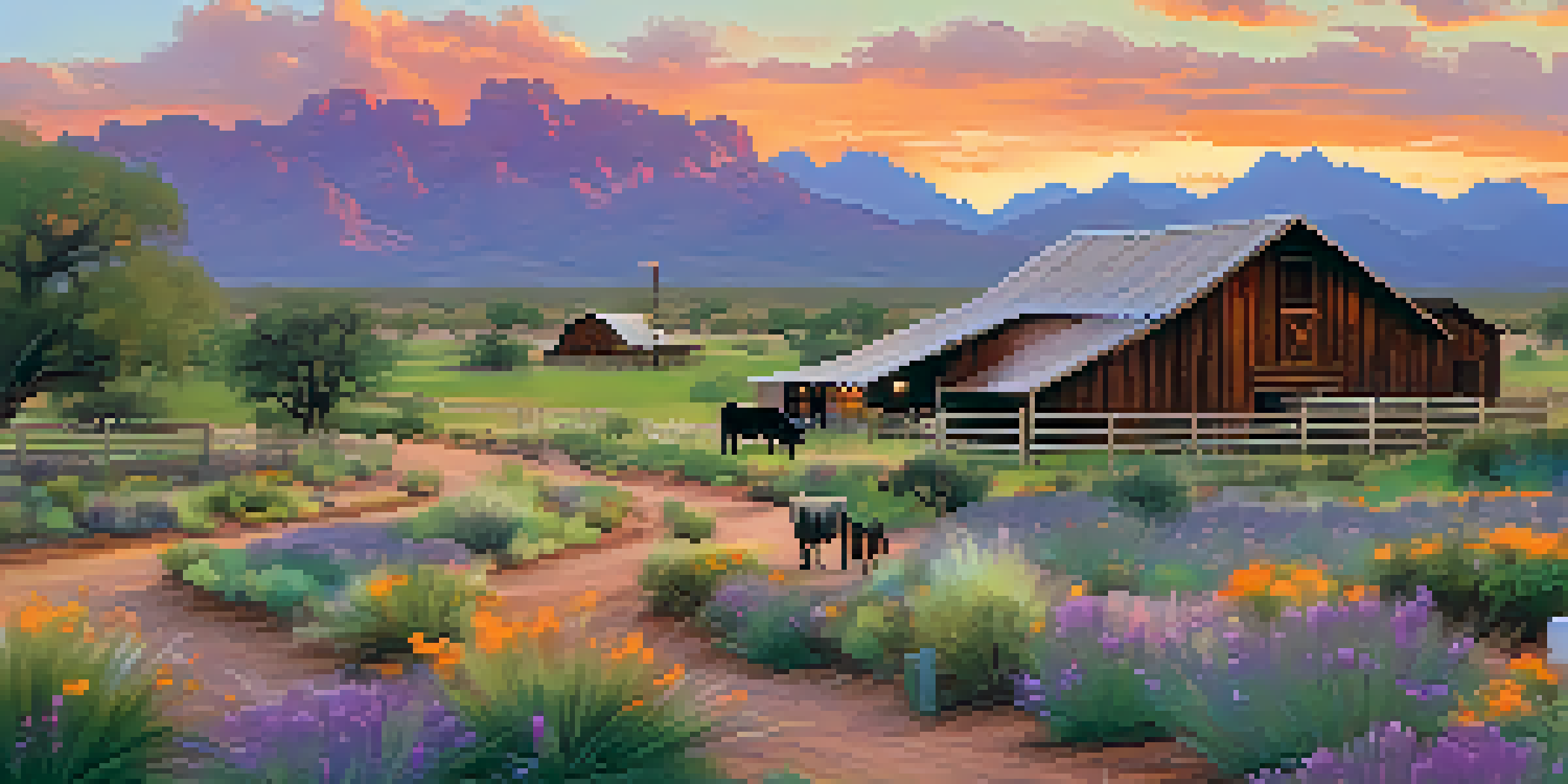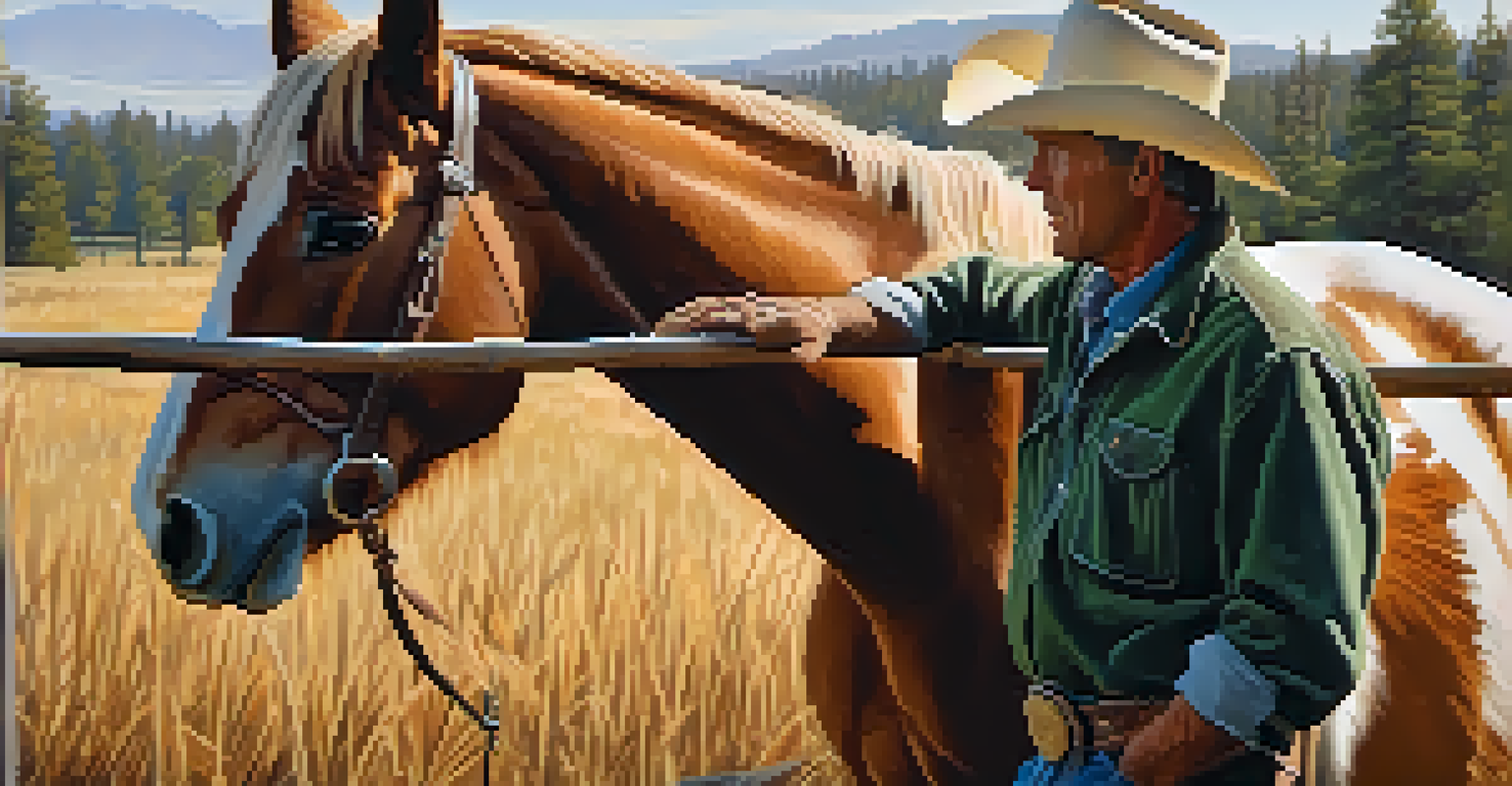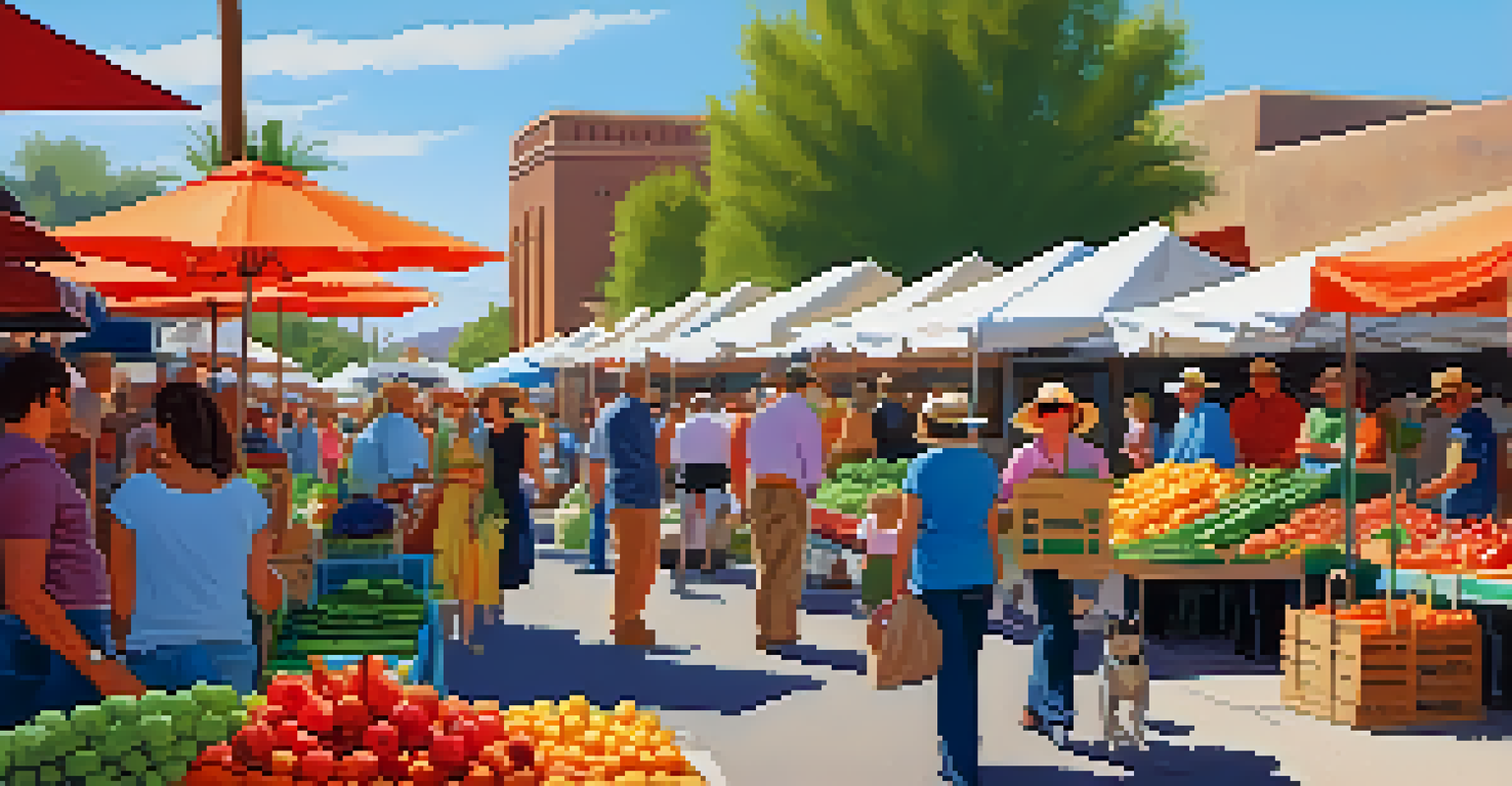Impact of Ranching on Scottsdale's Economic Development

Understanding Scottsdale's Ranching Heritage
Scottsdale, known for its vibrant community and luxurious lifestyle, has deep-rooted ties to ranching. This connection dates back to its early settlers, who relied on agriculture and livestock for sustenance. Ranching not only shaped the landscape but also laid the foundation for Scottsdale's cultural identity.
Ranching is not just a livelihood; it is a way of life that connects us to the land and to each other.
As the city evolved, the ranching legacy remained a vital part of its heritage. Today, this influence is evident in local events, festivals, and even the cuisine that celebrates the ranching tradition. Understanding this history is crucial to appreciating how ranching continues to impact the area.
Moreover, ranching represents more than just a profession; it's a way of life that embodies values such as hard work, community, and sustainability. These values resonate with residents and visitors alike, creating a unique narrative that enhances Scottsdale's appeal.
The Economic Contributions of Ranching
Ranching plays a significant role in Scottsdale's economy, contributing to job creation and local business support. From ranch hands to veterinary services, the industry provides employment opportunities for many residents. This not only boosts individual livelihoods but also stimulates the local economy.

Additionally, ranching supports various sectors, including tourism and agriculture. Tourists flock to Scottsdale for ranch-related experiences, such as horseback riding and farm-to-table dining, which injects money into the local economy. These activities help diversify Scottsdale's offerings, making it a more attractive destination.
Ranching Shapes Scottsdale's Identity
Scottsdale's ranching heritage is deeply rooted in its culture, influencing local events, cuisine, and community values.
Furthermore, ranching promotes the consumption of local products, encouraging residents to support nearby farms and ranches. This creates a circular economy where money spent stays within the community, fostering a sustainable environment for future growth.
Challenges Facing the Ranching Industry
Despite its contributions, the ranching industry in Scottsdale faces several challenges. Urban development and land use changes threaten the availability of open spaces essential for ranching. As Scottsdale continues to grow, the pressure to convert agricultural lands into residential or commercial properties intensifies.
The future of ranching is about embracing our heritage while innovating for sustainability.
Environmental factors also pose significant challenges. Issues like drought and climate change affect water availability, which is crucial for livestock and crops. Ranchers must adapt their practices to ensure sustainability, often requiring significant investment and support.
Moreover, competition from large-scale agricultural operations can make it difficult for local ranchers to thrive. They must navigate fluctuating market conditions while maintaining quality and sustainability in their practices, which can be a daunting task.
The Role of Technology in Modern Ranching
Technology is transforming the ranching landscape in Scottsdale, providing innovative solutions to age-old challenges. Modern tools, such as GPS tracking and data analytics, help ranchers optimize their operations, from herd management to land use. These advancements enable them to make informed decisions that can enhance productivity and sustainability.
Furthermore, technology facilitates better communication within the ranching community. Online platforms allow ranchers to share resources, knowledge, and best practices, fostering a collaborative spirit. This sense of community can be incredibly beneficial, especially when navigating the complexities of modern agriculture.
Economic Impact of Ranching
Ranching significantly contributes to Scottsdale's economy by creating jobs, boosting tourism, and promoting local products.
Lastly, technology also plays a role in marketing local ranch products. Social media and e-commerce platforms have opened new avenues for ranchers to reach consumers directly, promoting local beef, dairy, and other products. This not only enhances visibility but also strengthens the economic ties within the community.
Ranching and Scottsdale's Tourism Appeal
Ranching significantly enhances Scottsdale's tourism appeal, attracting visitors seeking authentic experiences. From ranch tours to cowboy-themed events, tourists can immerse themselves in the area's rich agricultural heritage. These experiences offer a unique perspective, showcasing Scottsdale's connection to its ranching roots.
Additionally, ranching-themed accommodations, such as guest ranches, provide visitors with a chance to experience life on a working ranch. This not only broadens the tourism offerings but also creates a memorable experience that encourages repeat visits. Tourists often leave with a newfound appreciation for the ranching lifestyle.
Moreover, local ranchers often collaborate with tourism operators to create packages that benefit both sectors. This partnership not only promotes ranching but also boosts the economy by attracting more visitors, highlighting the symbiotic relationship between ranching and tourism in Scottsdale.
Community Engagement Through Ranching Initiatives
Community engagement plays a vital role in promoting the ranching industry in Scottsdale. Local initiatives, such as farmer's markets and educational programs, encourage residents to connect with ranchers and understand the importance of agriculture in their community. These events foster a sense of belonging and pride in local heritage.
Moreover, ranching organizations often host workshops and outreach programs, providing resources for aspiring ranchers and farmers. These initiatives help educate the public about sustainable practices and the significance of supporting local agriculture. Engaging the community ensures the survival of ranching traditions for generations to come.
Challenges and Future of Ranching
The future of ranching in Scottsdale relies on balancing urban growth with preservation, adopting sustainable practices, and fostering community collaboration.
Additionally, community support for ranching helps preserve open spaces and rural landscapes, which are integral to Scottsdale's charm. By promoting ranching initiatives, residents can enjoy the benefits of a vibrant agricultural community while safeguarding the area’s unique character.
The Future of Ranching in Scottsdale
Looking ahead, the future of ranching in Scottsdale hinges on balancing growth with preservation. As urban development continues, finding innovative ways to integrate ranching into the city’s fabric will be crucial. This may involve establishing zoning regulations that protect agricultural lands while allowing for responsible growth.
Moreover, embracing sustainable practices will be key to ensuring the longevity of ranching in the area. Ranchers must adapt to changing environmental conditions by implementing eco-friendly methods that promote biodiversity and soil health. This proactive approach can help secure a future where ranching thrives alongside urban development.

Finally, fostering collaboration among stakeholders—including ranchers, local government, and residents—will be essential for shaping the future landscape of Scottsdale. By working together, the community can create a resilient framework that honors its ranching heritage while embracing new opportunities for growth.